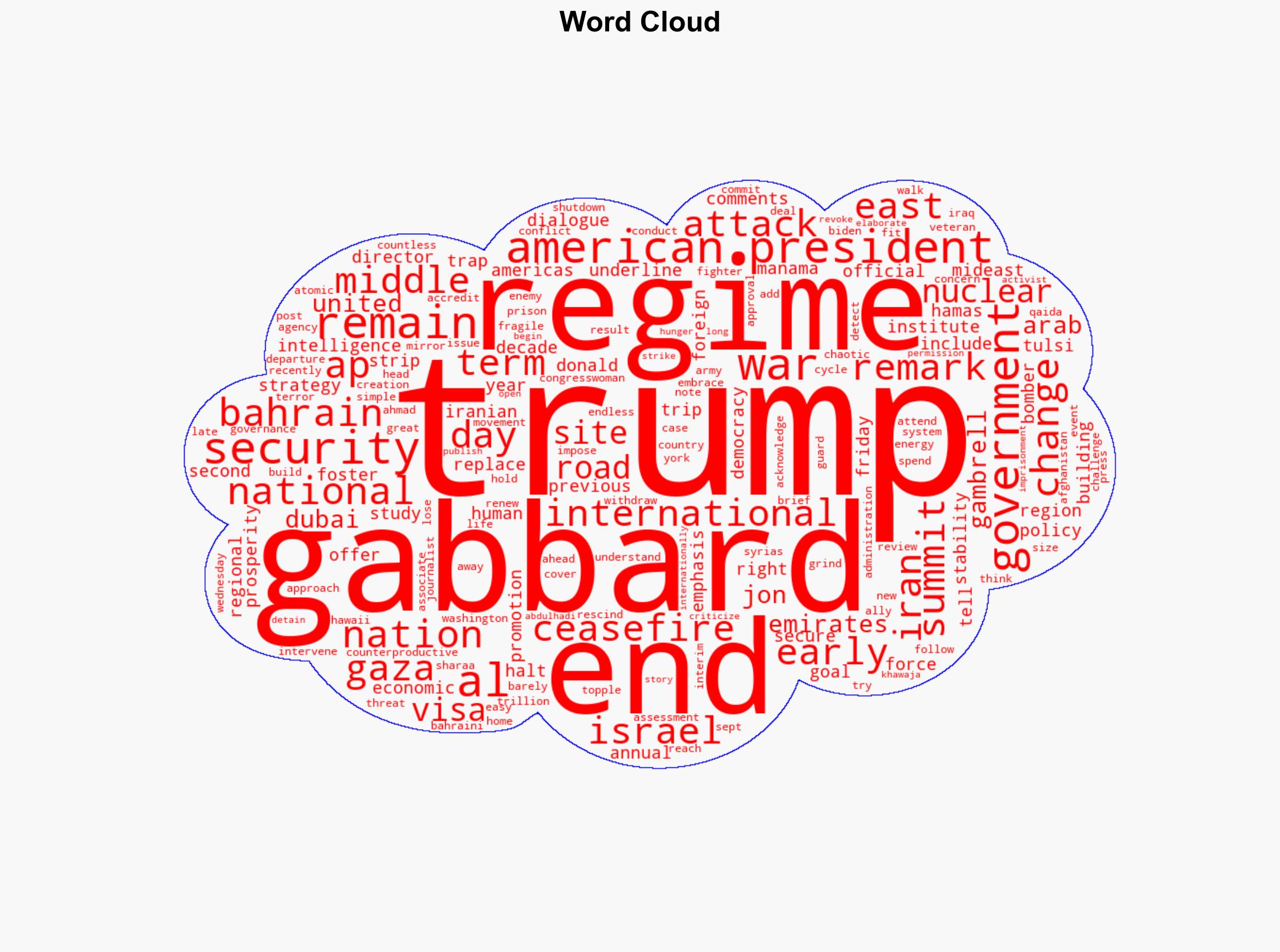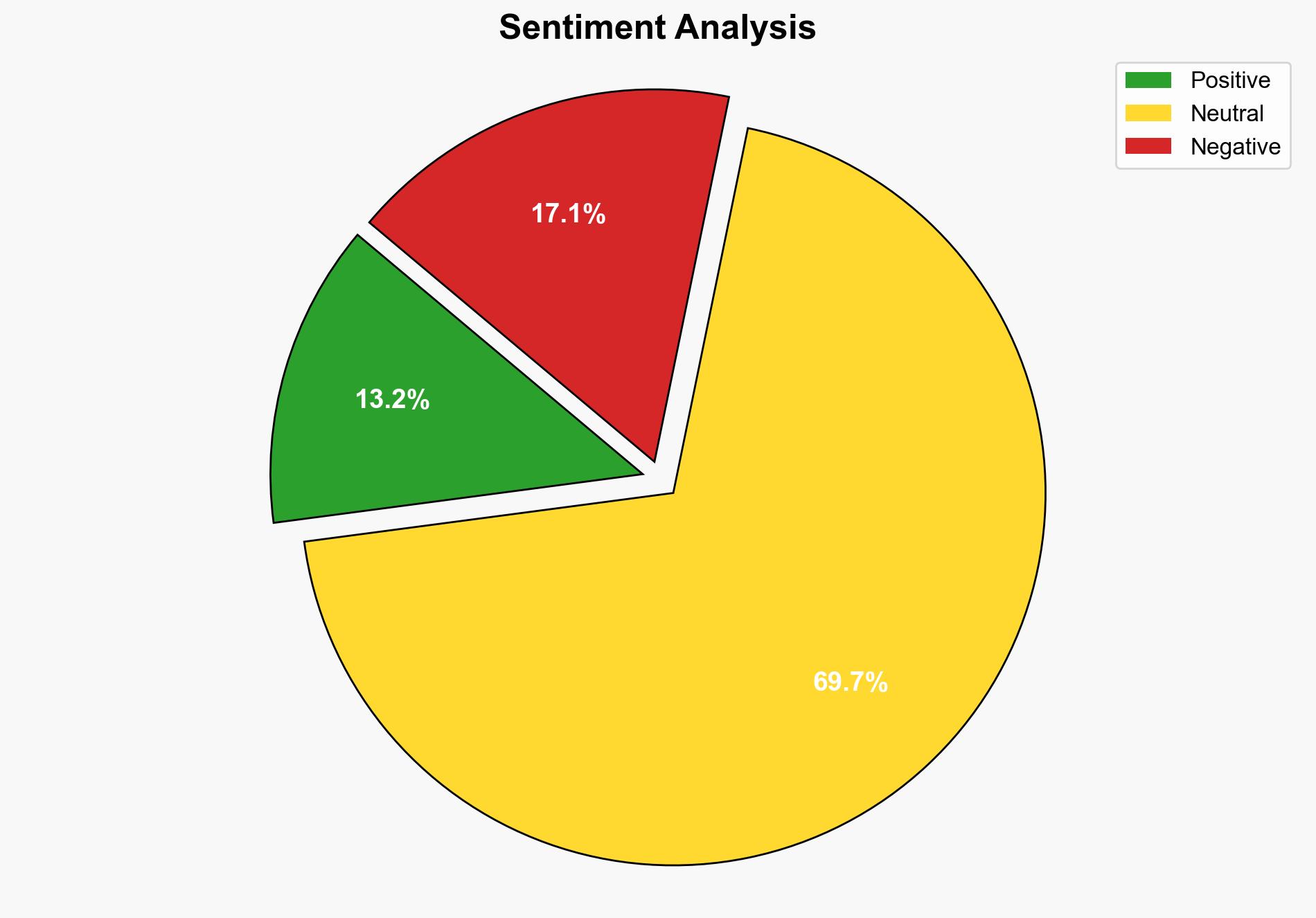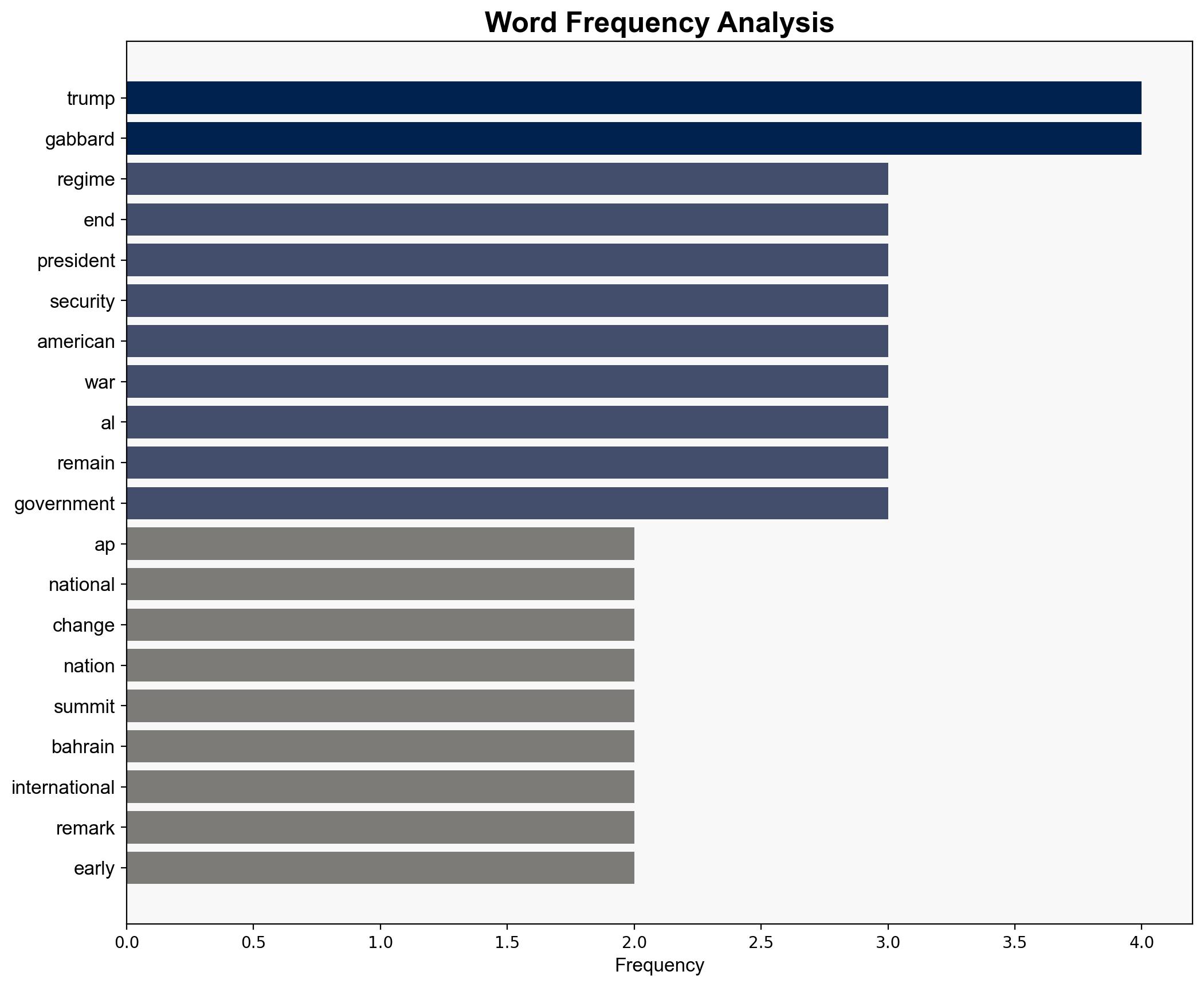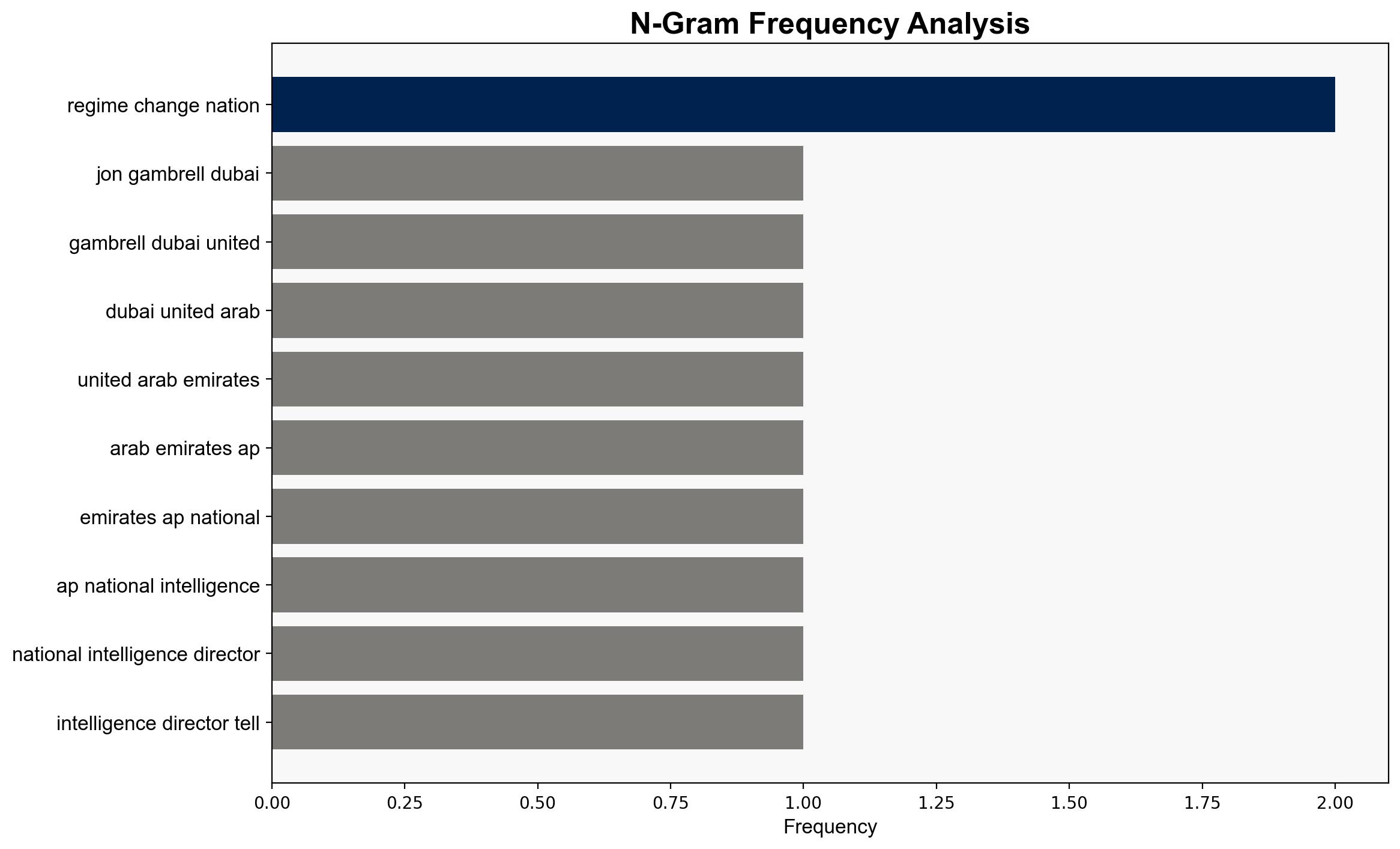US national intelligence director says former American strategy of regime change is over – Boston Herald
Published on: 2025-10-31
Intelligence Report: US national intelligence director says former American strategy of regime change is over – Boston Herald
1. BLUF (Bottom Line Up Front)
The strategic shift away from regime change and nation-building reflects a recalibration of US foreign policy priorities towards economic prosperity and regional stability. The most supported hypothesis is that this shift aims to reduce military entanglements and focus on diplomatic and economic engagements. Confidence level: Moderate. Recommended action: Enhance diplomatic channels and economic partnerships in the Middle East while monitoring regional stability.
2. Competing Hypotheses
Hypothesis 1: The US is genuinely shifting its strategy from regime change to focus on economic prosperity and regional stability, as a response to past failures and current geopolitical dynamics.
Hypothesis 2: The announcement is primarily rhetorical, intended to placate international and domestic audiences while maintaining flexibility for future interventions.
3. Key Assumptions and Red Flags
Assumptions:
– The US has the capability to pivot effectively from military to economic and diplomatic strategies.
– Regional actors will respond positively to the US’s new strategy.
Red Flags:
– Lack of detailed implementation plans for the new strategy.
– Potential cognitive bias in underestimating the complexity of regional conflicts.
– Contradictory actions, such as military deployments, could undermine the stated policy shift.
4. Implications and Strategic Risks
The shift could lead to reduced military expenditures and fewer US casualties, but it risks emboldening adversaries who perceive the US as retreating. Economic partnerships may strengthen, but without military deterrence, regional stability could be compromised. Cybersecurity and counter-terrorism efforts may need to be intensified to address non-military threats.
5. Recommendations and Outlook
- Enhance diplomatic efforts and economic ties with key regional players to solidify the new strategy.
- Develop contingency plans for potential regional destabilization.
- Scenario Projections:
- Best Case: Successful economic integration leads to increased regional stability and reduced conflict.
- Worst Case: Perceived US withdrawal leads to power vacuums and increased regional conflicts.
- Most Likely: Mixed outcomes with some economic gains but persistent regional tensions.
6. Key Individuals and Entities
– Donald Trump
– Tulsi Gabbard
– Ahmad al-Sharaa
– Abdulhadi al-Khawaja
7. Thematic Tags
national security threats, cybersecurity, counter-terrorism, regional focus




